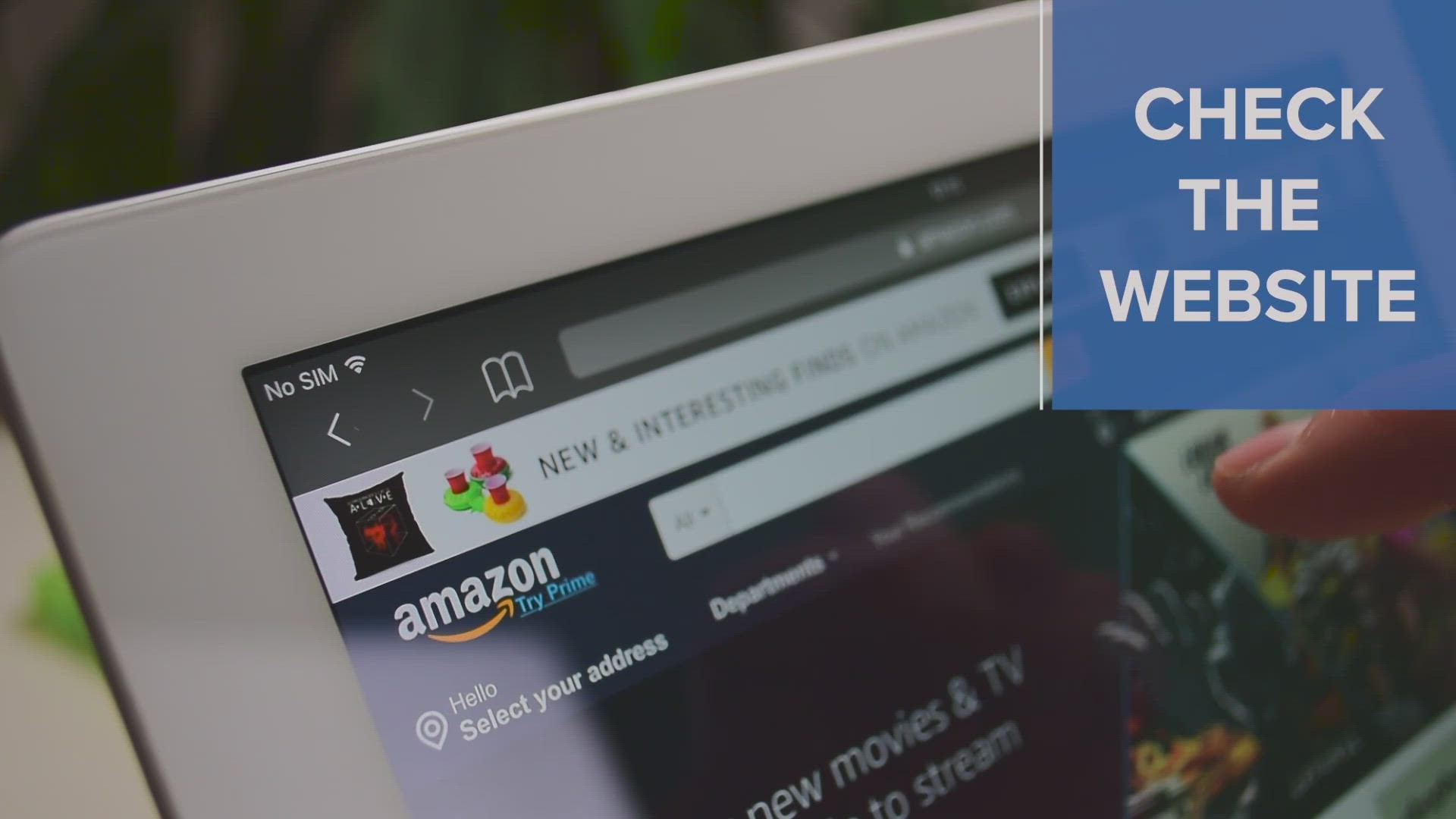SAN ANTONIO — Credit cards have great fraud protection, but it is easier to prevent fraud rather than deal with the headache of reversing charges or closing accounts.
Follow these tips to protect yourself and your credit cards:
1. Watch what you post on social media.
“If you want to post your dog’s name on Facebook or Instagram and who doesn’t?” said Beverly Harzog, a credit expert with U.S. News and World Report. “I do that myself. But don’t use your dog’s name in your password. Know this is something fraudsters really look for. So don’t go there. Don’t use your birthday, don’t use your kids' names. Try to come up with unique passwords that aren’t close to anything you do in your personal life.”
2. Check the website before you buy online.
Make sure the website you are using has a padlock and an “s” at the end of “https.”
“What that means is it’s a more secure website,” said Michael Skiba, a fraud expert known as Dr. Fraud. “You can actually just see it in the URL.”
3. Do not save your credit card information at online stores.
“What happens if somebody hacks into that website?,” Harzog said. “They’re going to be able to retrieve your information.”
4. Lookout for skimmers.
Check credit card readers before you pay.
“Does it look unusual?” Harzog said. “If it looks like it doesn’t quite fit, that’s one way to try to catch a skimmer.”
Use the gas pumps closest to the store to avoid skimmers.
“If you go to the pumps that are actually closer to the store, maybe right within sight. It may sound simple, but a scammer is going to have a harder time trying to get a skimmer in a unit that is right within plain sight,” Skiba said.
Also, use caution before using ATMs.
“I would always, always use an ATM at a bank,” Skiba said. “Maybe actually in the bank itself. If it’s after hours, some of them have the lobby. You can at least get into the first tier of the bank because the chances of those being skimmed are, it’s not 100%, but a lot lower than those that are just in wide open areas at the mall or in a store.”
Take this extra step to make sure your pin number is secure when you are using an ATM:
“Sometimes they’ll insert a tiny camera in the area so that when you key in your pin, they could just figure out what it is,” Harzog said. “It’s a good idea when you’re in the ATM area, just go shield your numbers with your hand so they can’t see what you’re typing in.”
5. Do not use public Wi-Fi for financial transactions.
“Public Wi-Fi is easily hacked by people who know what they’re doing,” Harzog said.
Sometimes scammers even set up their own public Wi-Fi to grab your information.
“We’ve seen a lot of fraudsters will actually put public Wi-Fi sites out in very high traffic areas like airports and coffee shops, bus stations, where people really are keen on using the Wi-Fi,” Skiba said.
6. Check your credit card transactions weekly.
“Just make sure that you don’t see any fraudulent purchases because the sooner you catch fraud and it’s happening, you know the better off you’re going to be,” Harzog said.
Look for small transactions.
"Sometimes a fraudster, even though they have your account information, they'll just run through sort of a small amount like seven or eight bucks, under $10 to kind of test the account, see that it's live," Harzog said. "Sometimes it's not going to be a big number, so you really do have to scan the transactions and you're checking those small amounts as well."
7. Consider freezing your credit
Frozen credit will keep scammers from opening accounts in your name that you do not know about. It is free and easy to do and easy to unlock if you need a credit check.

